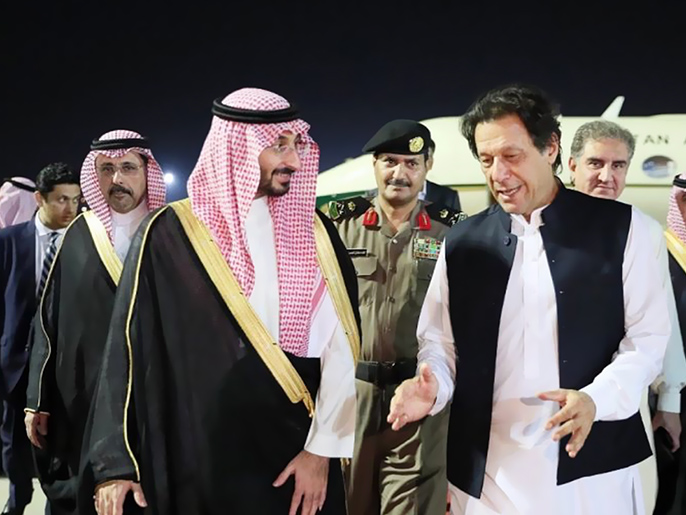With the move by a number of Gulf countries - including the UAE and Bahrain - to normalize relations with Israel, some observers wonder: Could Pakistan be next?
In response to this question, Editor Sadaf Chowdhury wrote in a report published by Middle East Eye that Pakistan is one of Saudi Arabia's closest allies, and at the same time Riyadh played a major role in polishing the image of Israel, and this position contributed greatly to the recent signing of what The Abraham Agreements are called between Israel, Bahrain and the Emirates.
He noted that the Saudi-Pakistani alliance is debt-bound, making Pakistan to bend to the kingdom's desires due to Islamabad's current financial concerns.
On the other hand, Chowdhury referred to what Pakistani Prime Minister Imran Khan said recently to a local news channel that his country will not recognize Israel due to the plight of the Palestinians, adding that even if "the whole world wants to recognize Israel, Islamabad will not do so."
The author believes that the biggest obstacle to Khan will be the country's many religious groups, which possess a great deal of power and vehemently oppose any recognition of Israel.
The largest religious group is against Imran Khan, and if the government ever decides to recognize Israel, the pressures of the religious authority will pose a great challenge
And based on what the head of the International Research Council for Religious Affairs in Islamabad, Muhammad Israr Madani, said, "The largest religious groups stand against Imran Khan, and if the government decides to recognize Israel, the pressures of the religious authority will constitute a great challenge, and the sectarian issues in the country are important and coupled with the tensions between Iran and Saudi Arabia." In the end, Pakistan will wait to see what Saudi Arabia will do. "
Chowdhury commented that Khan's public condemnation of the agreement contradicts Pakistan's secret meetings and sharing of information with Israel, referring to the landing of an Israeli plane in Islamabad in 2018, forcing the Pakistani government to issue repeated denials of visiting an Israeli delegation.
In addition, many Pakistani leaders - from former President Pervez Musharraf to Foreign Minister Shah Mahmud Qureshi - have called for better relations with Israel, and in 2005 Musharraf made a bold public statement by shaking hands with then Israeli Prime Minister Ariel Sharon in Istanbul.
The writer pointed to the tension in relations between Pakistan and Saudi Arabia in recent years, and the recent political dispute between the two countries focused on the Kingdom's failure to support the Kashmir issue after the Indian government's move last year to remove the special autonomy status on Jammu and Kashmir, which led to the condemnation of the Pakistani foreign minister who warned that He can no longer "tolerate" diplomatic courtesy with the kingdom on this issue.
The author ended his report with what the researcher at the South Asia Institute said, Aisha Siddiqua, that any recognition of Israel would be a very difficult internal challenge due to the "chaotic democracy" in the country, adding that "the idea of communicating with Israel will only lead to a revolution."

